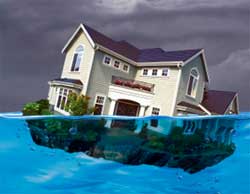After the death of a friend or loved one, it can be very confusing what to do with their finances. When an individual dies, sometimes the debt they leave behind must be paid by their estate, other times it does not. If the deceased had a co-signer on a debt, then that co-signer is still legally responsible for that debt. In some states, a spouse may also still be liable for certain debts such as health care expenses.
Oftentimes, a relative is NOT liable for the debts of the deceased. But a creditor may call you and imply that you are responsible or try and guilt you into paying. This may be illegal and our Jacksonville Consumer Law Attorney may be able to make the creditor stop their collection activities against you and sue the creditor for any damages.
Before you pay for these debts, contact a Jacksonville Consumer Law Attorney to discuss if you must pay the debt or not.
 Jacksonville Bankruptcy Lawyer Blog
Jacksonville Bankruptcy Lawyer Blog



 In a Chapter 13 bankruptcy, a
In a Chapter 13 bankruptcy, a